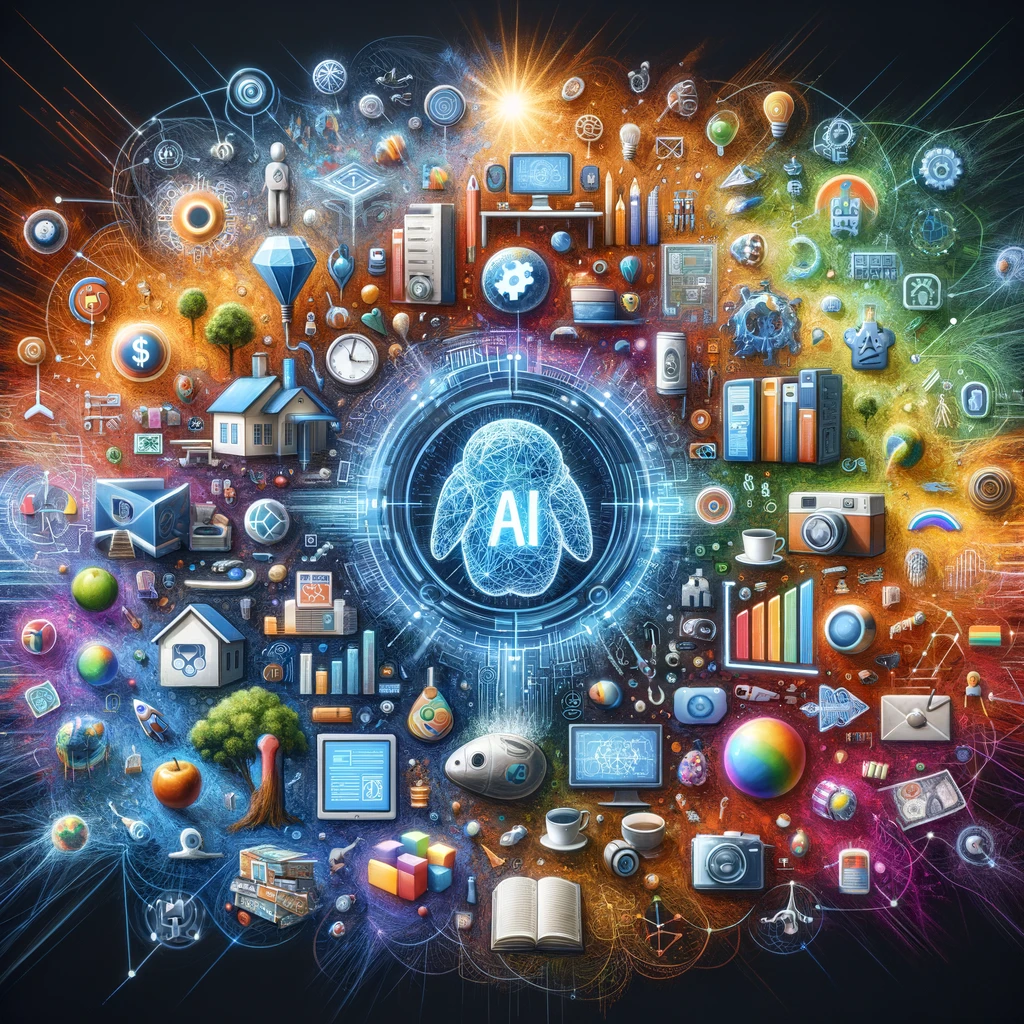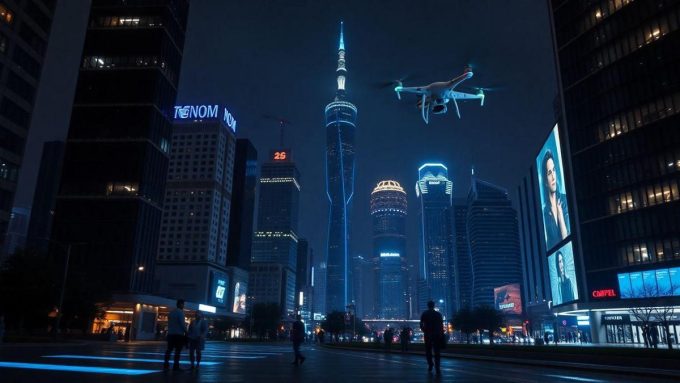Have you ever stopped to consider the role of artificial intelligence (AI) in our lives today? It feels like something out of a sci-fi movie, but AI is here, transforming everything from how we shop to how we receive medical care.
In this article, we’ll dive into the fascinating world of AI, uncovering what it can do for us now and what to expect in the future. Ready? Let’s go!
navegue pelo conteúdo

Fundamentals of Artificial Intelligence
AI is that invisible friend making our lives easier, you know? From responding “Ok, Google” to turn on the lights to systems that help doctors diagnose diseases more quickly. Essentially, AI is a set of technologies that allows machines to think and act like humans.
We have two types: weak AI, specialized in specific tasks like your virtual assistant, and strong AI, which is still a future goal, with the promise of understanding and performing any intellectual task a human can do.
The secret behind AI? Machine learning, natural language processing, and much more, allowing machines to learn from experiences and improve over time.
What Is Possible with Artificial Intelligence
Now, let’s get to the interesting part: what can AI really do? In healthcare, it’s helping to save lives, with systems that analyze exams faster than a human glance. In the financial sector, AI detects fraud in the blink of an eye, protecting your money.
And in your daily life? Well, if you’ve ever asked for a movie recommendation from Netflix or used a map to avoid traffic, that was AI working for you.
Even in art and music, creatives are using AI to inspire new forms of expression. Impressive, right?
Practical Applications of AI
The magic of artificial intelligence (AI) lies not just in its technical complexity but in how it’s revolutionizing our day-to-day lives and various industries.
Let’s delve into some of the most impactful AI applications that are transforming the world around us.
Health
In healthcare, AI is like a superhero without a cape. It’s behind advances in medical imaging analysis, enabling faster and more accurate diagnoses of diseases like cancer.
But that’s not all: AI algorithms are personalizing treatments for patients, based on their unique medical history, and even aiding in the research and development of new drugs.
Imagine having treatments designed especially for you with the help of a superintelligent computer!
Financial Sector
In the world of finance, AI acts as a guardian of our resources. It helps detect fraudulent transactions almost in real time, protecting our savings from scammers.
Additionally, AI algorithms are optimizing investment management, analyzing vast amounts of data to identify the best opportunities. It’s like having a personal financial advisor who never sleeps.
Everyday Life
In our daily lives, AI has become a constant companion. From virtual assistants that understand and respond to our questions in natural language to recommendation systems that suggest the next movie to binge-watch or the next song to listen to.
And who could forget about autonomous vehicles? They promise to transform our roads, making journeys safer and less stressful.
Industry and Business
Companies of all sizes are using AI to optimize operations and offer better customer experiences. In retail, for example, AI is personalizing the shopping experience, suggesting products based on consumers’ preferences and buying behavior.
In manufacturing, intelligent systems are predicting equipment failures before they happen, minimizing unplanned downtime.
Education
AI is also transforming education, personalizing learning according to the needs of each student. AI-based educational platforms can adapt content to the pace and learning style of the student, making education more effective and accessible to everyone.
Sustainability
In the fight against climate change, AI is becoming a valuable tool. Algorithms are helping optimize the use of natural resources, predict extreme weather events with greater accuracy, and improve the energy efficiency of buildings and cities.
It’s a powerful example of how technology can be used for the greater good.
Creativity and Entertainment
In the realm of creativity, AI is opening new frontiers. Artists are using AI to create unique works of art, while in music, algorithms are composing pieces that sound as if they were created by humans.
In entertainment, AI is behind the creation of increasingly realistic visual effects in movies and games.
These practical applications of AI are just the tip of the iceberg. As technology evolves, new and unimaginable applications will emerge, promising to transform our world even more.
Artificial intelligence is not just a tool for the future; it’s here, now, shaping our present in ways we’re just beginning to explore.
Impact of AI on Society
But is AI all wonders? Not exactly. It brings many benefits, such as making services more efficient and helping solve complex problems.
On the other hand, there are legitimate concerns about privacy and jobs. Yes, AI can automate tasks, but it can also create new job opportunities.
The challenge is to find a balance, ensuring that AI is used ethically and responsibly.
Challenges and Limitations of Artificial Intelligence
Speaking of challenges, AI is not perfect. It can learn, but it still struggles to understand very complex contexts or the nuances of human language like we do.
Moreover, there’s the issue of algorithmic bias — essentially, an AI can inherit human prejudices if not carefully trained. And there’s more: who is responsible when an AI makes a wrong decision? These are important issues we need to solve together.
The Future of Artificial Intelligence
So, what awaits us in the future? AI is developing at an impressive speed, promising innovations that can transform our society in ways we’re still trying to understand.
From improving healthcare even further to tackling climate change, the possibilities are as vast as our imagination. But for this future to be bright for everyone, we need to address the ethical and technical challenges AI presents.
Conclusion
In this journey through the world of AI, we’ve seen everything from its foundations to future promises. Artificial intelligence is already working wonders, but it also challenges us to think about the kind of future we want to build.
As we explore this new territory, the key will be to ensure that AI benefits everyone in a fair and equitable manner. The future of AI is being written now, and each one of us has a role to play in this story.
Shall we go on this journey together?















Leave a comment